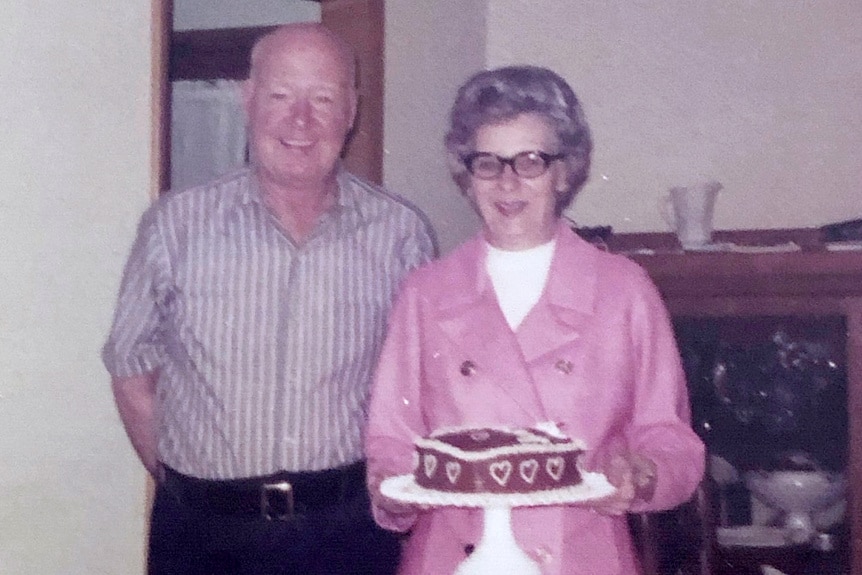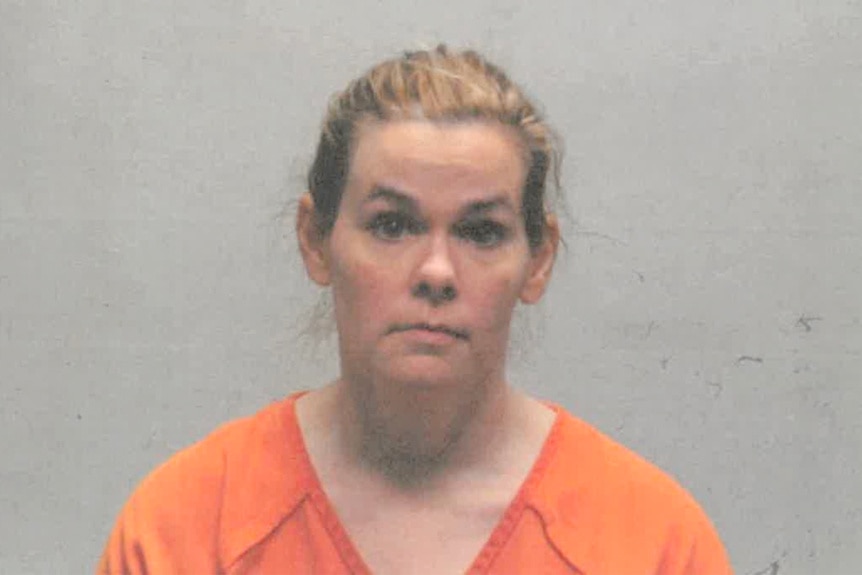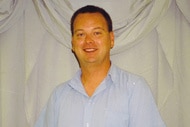Create a free profile to get unlimited access to exclusive videos, breaking news, sweepstakes, and more!
Missouri Woman Admits to Poisoning and Killing Patients: “She Wanted To Play God”
Although doctors and nurses long suspected an employee of poisoning patients at a Missouri hospital, it took another look at the case from a police officer 20 years later to lead to the arrest of Jennifer Hall for murder.
Respiratory therapist Jennifer Hall was hired at Hedrick Medical Center in Chillicothe, Missouri, in December 2001. But just two months later, a string of deaths and medical emergencies began to happen to otherwise seemingly healthy patients.
“Who is perpetuating these poisonings?” Livingston County prosecuting attorney Adam Warren said of the emergencies on Accident, Suicide or Murder, airing Saturdays at 8/7c on Oxygen. “Are they accidental? Are they purposeful?”
Despite the cloud of suspicion over her head, Hall escaped arrest and prosecution for two decades. That all changed when a police officer reopened the case and took it all the way to the FBI’s Behavioral Analysis Unit.
“What they said just chilled me,” Lt. Brian Schmidt, a retired Chillicothe police officer, said on Accident, Suicide or Murder. “She said, ‘This is not as uncommon as people think. This happens a lot. There’s a lot of medical serial killers.'"
For more on true crime:
Illinois Father Is Shot Dead When Picking Up Daughter From Ex-Wife's "Clannish" Family
Clues Revealed for First Time in Murder of 27-Year-Old Singer Found Tied Up in Her Home
The Shocking Murder of NBA Star Lorenzen Wright: "Ultimate Evil"
Fern Franco and Coval Gann's Deaths Are Investigated
Fern Franco, 75, was admitted to Hedrick Medical Center for pneumonia in her lung on May 17, 2002. The next day, she was found in cardiac arrest by respiratory therapist Jennifer Hall. Hall alerted a nurse, who called a “code blue,” meaning Franco needed immediate resuscitation as a result of a respiratory or cardiac arrest. Despite the best efforts of doctors and nurses, Franco died. Her cause of death was determined to be from natural causes, and she was embalmed and buried.
“Then on the 21st, I got some indication from some of the nurses at the hospital…that maybe she didn’t die as a result of natural causes, and I was taken aback,” Scott Lindley, former Livingston County coroner and funeral home owner, said on Accident, Suicide or Murder.
Dr. Cal Greenlaw, an internal medicine physician, had suspected something was wrong at the hospital for months before Franco’s death.
“He said, ‘Somebody’s juicing my patients,’” Lindley said. “He thought somebody was giving them something that would poison the patient while they were there at the hospital.”
In a deposition, Dr. Greenlaw described how a woman coded and needed her heart restarted, noting that her blood sugar was dangerously low.
“Nothing made sense of why she should code. She wasn’t that sick. She had mild pneumonia. She was fairly young,” Dr. Greenlaw said in the deposition. “I was discussing with nurses that something major is wrong here — why this person had coded because of low blood sugar and continued to code.”
Dr. Greenlaw believed the patient had been given a large amount of insulin, despite not being diabetic and having no medical reason to be administered the drug.
Coval Gann was another patient who died under mysterious circumstances after being admitted for dehydration, just two months before Franco’s death. His cause of death was ruled a heart attack.
“82 years old. He was kind of in frail health,” said David Gann, Coval’s son, on Accident, Suicide or Murder. “I thought, ‘Well, maybe that’s just what happens.’”
The idea of drugs like insulin deliberately being used to poison patients was difficult to prove.
“When you autopsy somebody from that, there’s nothing to be seen,” Lindley said. “‘Cause that drug dissipates so quickly after someone dies, that it’s hard to find it.”
Autopsy Uncovers New Details
As Lindley began combing through the medical records of all the patients who coded in the previous few months, he found one common denominator: Jennifer Hall.
“She was the one that found the code, started the code, and finished the code,” he said.
As suspicion was thrown onto Hall, the hospital issued a directive that she was not allowed to be in any patient rooms without another person present. She was fired after Franco’s death for not following this rule.
Hall also had a troubled criminal past. Police learned she’d set fire to her school when she was in eighth grade. Additionally, he was tried and found guilty of arson for a fire at the hospital where she was previously employed. It was during her wait for sentencing that she was hired by Hedrick Medical Center, which said it had no knowledge of her criminal history. She only served one year in prison after working at Hedrick Medical Center, before she was later cleared of the arson charges.
Meanwhile, Lindley noticed a common drug involved in the patients’ care besides insulin: succinylcholine. When given in the wrong doses, it can cause injury and death.
“Succinylcholine is a paralytic agent that they use to intubate people,” Warren said. “When they put that tube down your throat to help you breathe, you will often gag or cough. So, they use succinylcholine to paralyze your throat.”
RELATED: The Christopher Duntsch Surgery That Was So Bad One Doctor Called It ‘Attempted Murder'
Lindley realized that because Franco had been embalmed so quickly after her death, it might have preserved any drugs she was given in her tissues and asked for an autopsy.
“We were going to figure out how Fern Franco died. I was not going to quit until I got that done,” he said.
He sent Franco’s samples to a lab in Philadelphia to test for succinylcholine. In 2004, he received confirmation that traces of the drug were found in Franco’s kidney. The narcotic drug morphine was also found in her system.
What happened to respiratory therapist Jennifer Hall?
Despite this, the county prosecutor and the state attorney general’s office all declined to bring charges against Hall. Families of the victims filed wrongful death lawsuits against the hospital and Hall, but in August 2015, the Missouri Supreme Court ruled there was no case.
“This case sat in the prosecutor’s office and the police department for years,” Gann said. “It just languished…it’s unfortunate that Jennifer Hall got to walk around free.”
In 2018, coroner Scott Lindley convinced the Chillicothe police chief to take another look at the case, and Lt. Brian Schmidt was assigned. Using evidence from the FBI’s Behavioral Analysis Unit, physical evidence from the autopsy of Fern Franco, and previous depositions, he believed he had enough evidence for a criminal case by 2022. He wrote a probable cause statement, and the prosecuting attorney got a warrant for Jennifer Hall’s arrest for the murder of Fern Franco.
“The impulse problems. The impulse control,” Warren said. “The need to hurt other people because she’s unable to process her own life. She was motivated to harm people. And got pleasure from it.”
Rather than go to trial, Hall admitted to poisoning three patients, including Fern Franco and Coval Gann.
“She wanted to see the excitement from it,” Warren said. “She wanted to see these people code. To be the one to know the code was coming. She wanted to play God.”
Hall was sentenced to 18 years in prison — which Coval Gann’s son doesn’t believe is enough justice.
“She should spend the rest of her life in prison,” he said. “She’s a serial murder case. But at least that’s better than nothing. I just wish it had happened when my mom was alive so she could have had some closure on it also.”
Watch all-new episodes of Accident, Suicide or Murder on Saturdays at 8/7c on Oxygen and the next day on Peacock.




































